
President
Dr. Erika Robb Larkins is Professor of Anthropology and Director of the Behner Stiefel Center for Brazilian Studies at San Diego State University. She received her doctorate in Cultural Anthropology from the University of Wisconsin, Madison and also holds a M.A. in Latin American Studies from the University of Chicago. Larkins’ research and teaching focuses on violence and inequality in urban settings. Her first book, The Spectacular Favela: Violence in Modern Brazil (U California Press 2015), explores the political economy of spectacular violence in one of Rio’s most famous favelas. A second book, The Sensation of Security: Private Guards and Social Order in Brazil (Cornell 2023), examines how the private security industry produces urban inequality. She has also published on issues of race, gender, and politics in Brazil, with recent articles appearing in American Ethnologist, City and Society, and the Journal for Latin American and Caribbean Anthropology, and in public outlets including El País and Al Jazeera.
Larkins’ is currently working on a new National Science Foundation funded research project on the intersection of extreme heat, environmental racism, and inequality in Rio de Janeiro. She was recently awarded a National Endowment for the Humanities grant to co-teach the second iteration of the NEH Summer Institute, “Race, Modernity and Urban Spaces in Brazil” for higher education faculty in 2022.
Larkins is committed to advancing scholarship on Brazil across academic fields. In her work as the director of an interdisciplinary Brazilian Studies center, she fosters collaborative research between scholars in the humanities and social sciences and areas as diverse as Engineering, Public Health, Education.
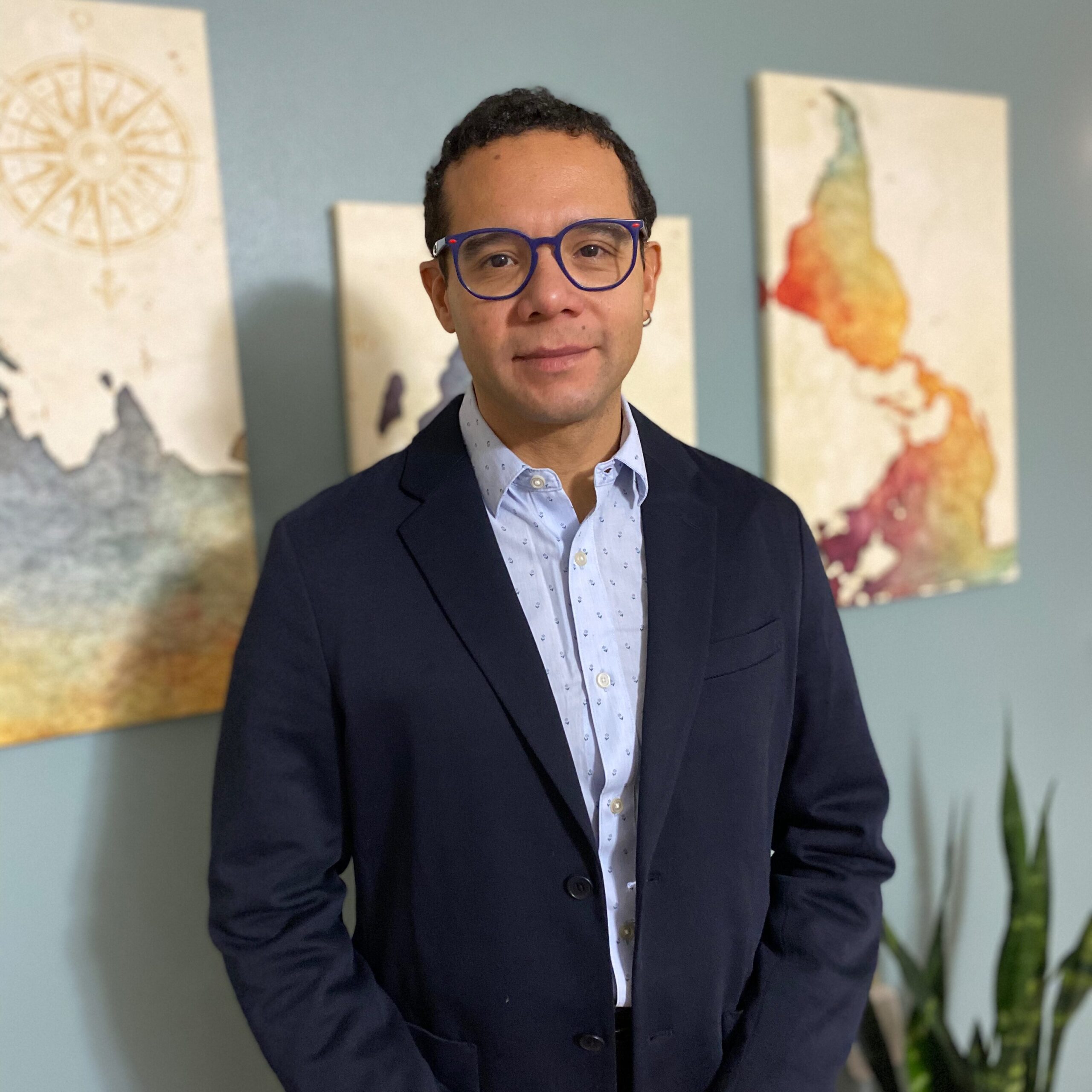
Vice President
Fabio de Sa e Silva is Associate Professor of International Studies and the Wick Cary Professor of Brazilian Studies at the University of Oklahoma and an affiliated fellow of Harvard Law School’s Center on the Legal Profession.
Fabio is the author of high-impact studies on law, lawyers, and democracy. His article From Carwash to Bolsonaro examines the “political grammar” produced and disseminated by Brazilian legal officers through the lava jato anticorruption initiative. This article received extensive media coverage in Brazil and became the most-cited and most-downloaded article in the Journal of Law and Society for the year 2020. His next major article, Relational Legal Consciousness and Anticorruption, maps the cultural schemata coproduced through interactions between the prosecutors ahead of lava jato and their followers on Facebook. This article was the theme of a full-page interview in the Brazilian newspaper Folha de Sao Paulo and won the Law & Society Association’s best article award in 2022.
Currently, Fabio is one of the conveners of the Project on Autocratic Legalism (PAL), an LSA International Research Collaborative that is designing comparative research on how rising autocrats in Brazil, India and South Africa use law to amass power and what can be done to stop their moves. In this capacity, he also hosts the PAL Cast, a podcast series where he interviews lead scholars on law and (un)democratic politics.
Fabio is also an institution builder. He co-directs the OU Center for Brazil Studies; is a member of BRASA’s Executive Committee; and a Trustee of the Law and Society Association (LSA), Class of 2023. If elected to BRASA’s Vice Presidency, he will work to ensure that the Association remains an influential voice in Brazilian affairs in Brazil and the US and that the Brazilianist community offers a meaningful contribution to the understanding of Brazilian issues, at a time when the country tries to return to a path of inclusive, sustainable, and democratic development.
Fabio is frequently sought after by the media to comment on Brazilian affairs. His latest appearances include outlets such as BBC News, the Washington Post, Radio France International, The Intercept, and The World; in addition to Brazilian vehicles such as Rede TV, Folha de São Paulo, UOL, The Intercept Brasil, Correio Braziliense, and O Globo.

Past President
Sidney Chalhoub
Sidney Chalhoub is Professor of History and of African and African American Studies at Harvard University. Before coming to Harvard, he taught at UNICAMP for 30 years. He has published three books on the social history of Rio de Janeiro: Trabalho, lar e botequim (1986), on working-class culture in the early twentieth century; Visões da liberdade (1990), on the last decades of slavery; and Cidade febril (1996), on tenements and epidemics in the second half of the nineteenth century. He also published Machado de Assis, historiador (2003), about the literature and political ideas of Machado de Assis. His latest book monograph is A força da escravidão (2012), on illegal enslavement and the precariousness of freedom in nineteenth-century Brazil. Professor Chalhoub has supervised 30 completed PhD dissertations, 23 MA theses, and 29 senior theses and is very proud of my former students. The large majority of those who completed their doctorates under his supervision are now professors in public universities in all regions of Brazil.
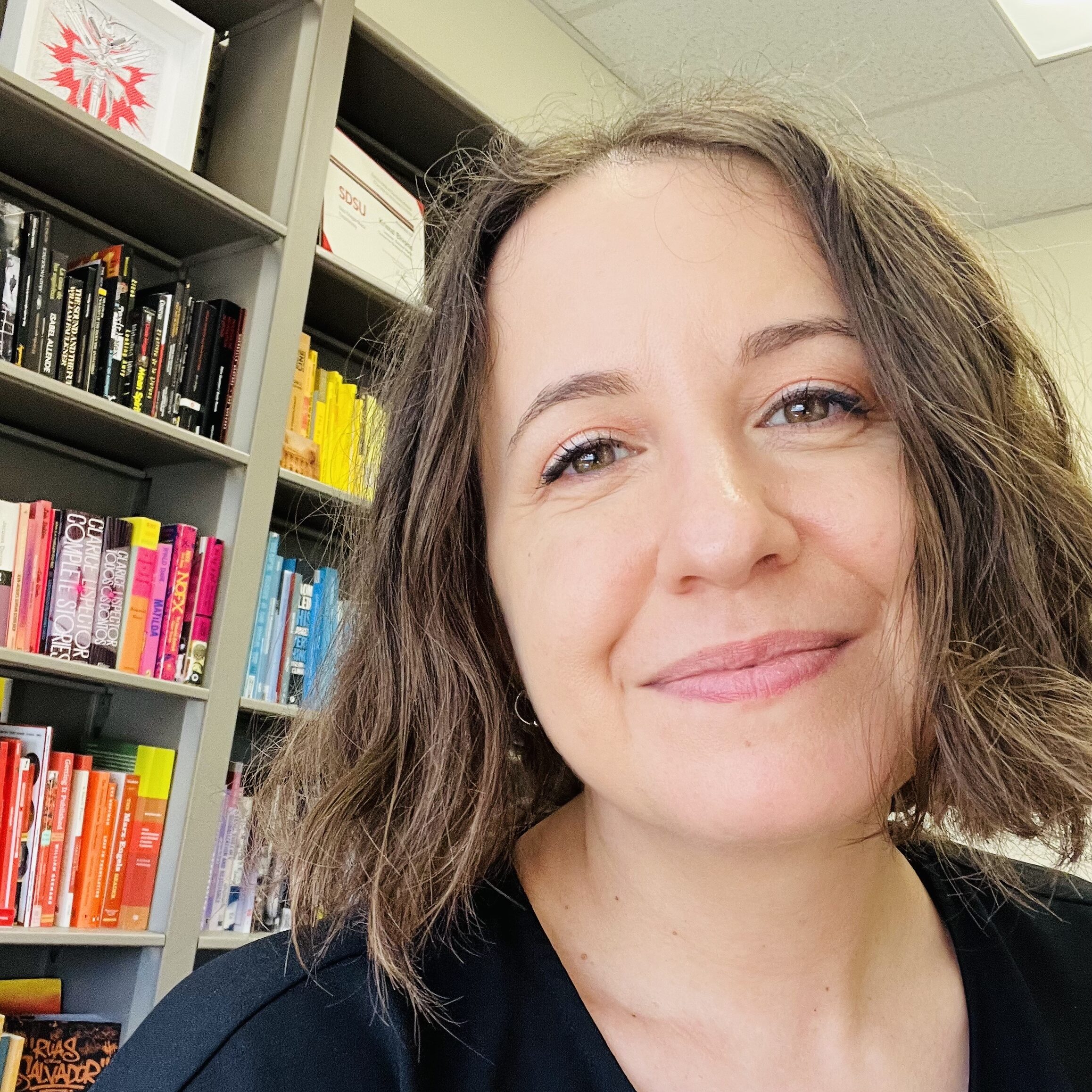
Kristal Bivona
Kristal Bivona is Assistant Professor in the Department of Classics and Humanities and associate director of the Behner Stiefel Center for Brazilian Studies at San Diego State University, where she designed and launched a bachelor of arts program in Brazilian Studies and produces the award-winning digital humanities platform, the Digital Brazil Project. She has programmed the SDSU Brazilian Film Series since 2020 and programmed the Brazilian Film Series at UCLA in collaboration with the Consulate General of Brazil in Los Angeles from 2019-2020. Bivona previously taught at UCLA as a faculty fellow in the Department of Spanish and Portuguese and worked in the Center for Brazilian Studies. She holds a doctorate in Hispanic languages and literatures and a masters in Portuguese from UCLA and a masters in comparative literature from Dartmouth College. Her research broadly looks at how visual culture (including cinema, visual art, graffiti, and pixação) intervenes cultural memory. Bivona’s current book project, “Democracy out of Focus: Political Memory and Post-Dictatorship Brazilian Cinema,” examines the formation of political memory of Brazil’s most recent military dictatorship and the role of audiovisual production, shedding light on how cinema in Brazil has contributed to or challenged the memories and discourses that dominate the collective imaginary from the democratic transition to today. She has articles published in Luso-Brazilian Review, Ciberletras, Memory Studies, and Latin American and Latinx Visual Cultures and forthcoming in Studies in Spanish and Latin American Cinemas.
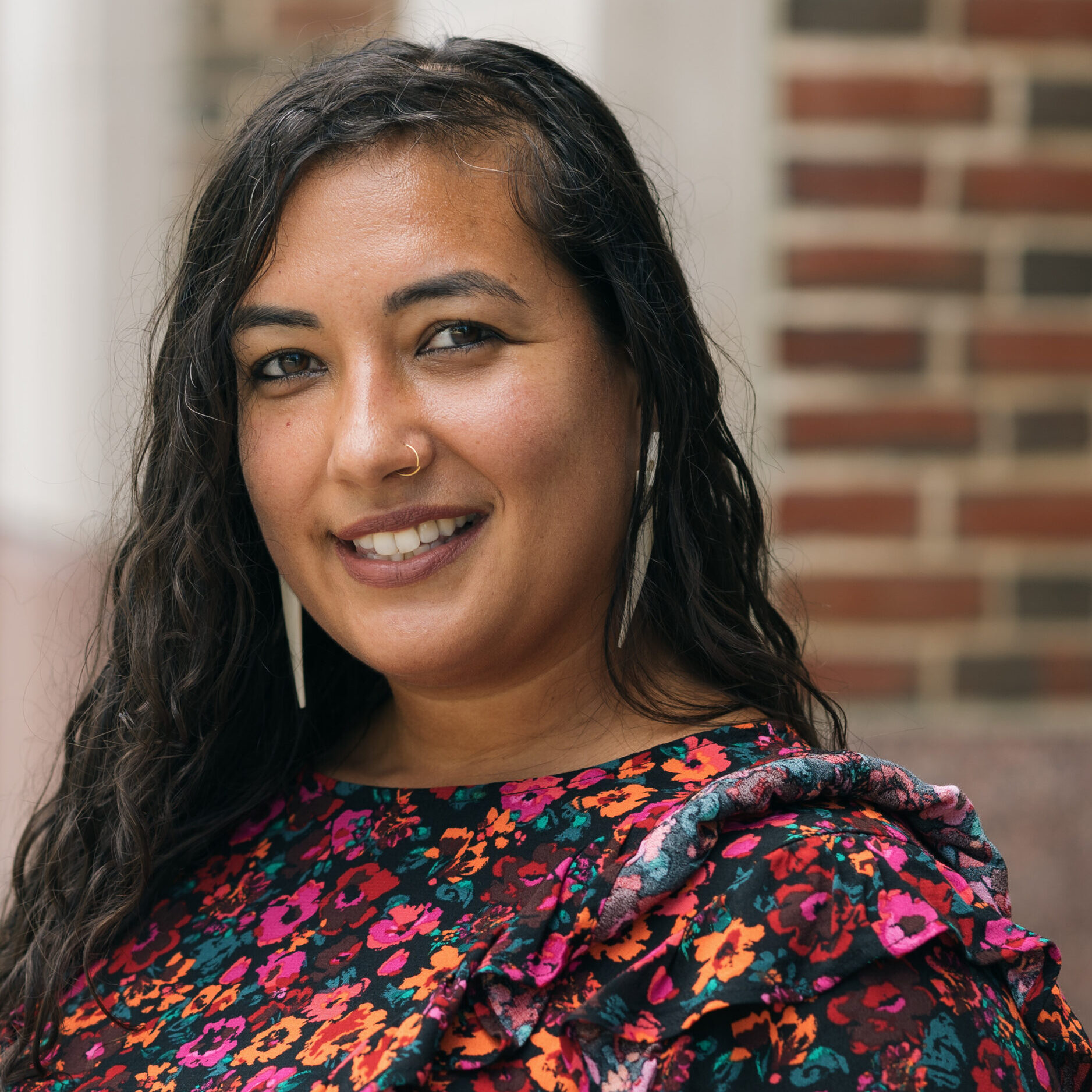
Vanessa Castañeda
Vanessa Castañeda is Assistant Professor of Afro-Latin American Studies at Davidson College with a joint appointment in Africana Studies and Latin American Studies. She was the Guarini Dean’s Postdoctoral Fellow in Afro-Latin American Studies at Dartmouth College from 2021-2023, after earning her Ph.D. in Latin American Studies from Tulane University. Her research centers on the baianas de acarajé, predominantly older, working-class Black women who are street vendors in Salvador, Brazil, that sell typical regional foods with culinary origins in West Africa. They also have come to exist as central icons of African heritage tourism and cultural figures of regional and national Brazilian identity. Using interdisciplinary methodologies, including archival research and twenty months of community-based ethnographic fieldwork with the National Association of Baianas (ABAM), her forthcoming manuscript, tentatively titled Tabuleiros of Resistance: A Reconceptualization of Brazil’s Baianas de Acarajé reconsiders baianas—through their profession and grassroots advocacy—as political agents of Black feminism for self and collective liberation. Her publications include “Mucamas or Baianas?: Black Female Empowerment and Cultural Representation in Bahia” in The Latin Americanist Annals Issue, which received Honorable Mention in the Best Article Prize in the Social Sciences by the Brazilian Studies Association. Her research has been supported by the Brazilian Studies Association (BRASA) Initiative Scholarship, the Tinker Foundation, and the US Fulbright Program. She is also currently a Future of Food Fellow with the Society for the Anthropology of Food and Nutrition (SAFN) with the American Anthropological Association (AAA) and a Racial Justice Pedagogy Fellow with the Association for the Study of Food and Society (ASFS). As a first-generation student, Vanessa is very committed to mentorship and educational equity, and was the founder of the Undocumented Student Support Committee at Tulane University.
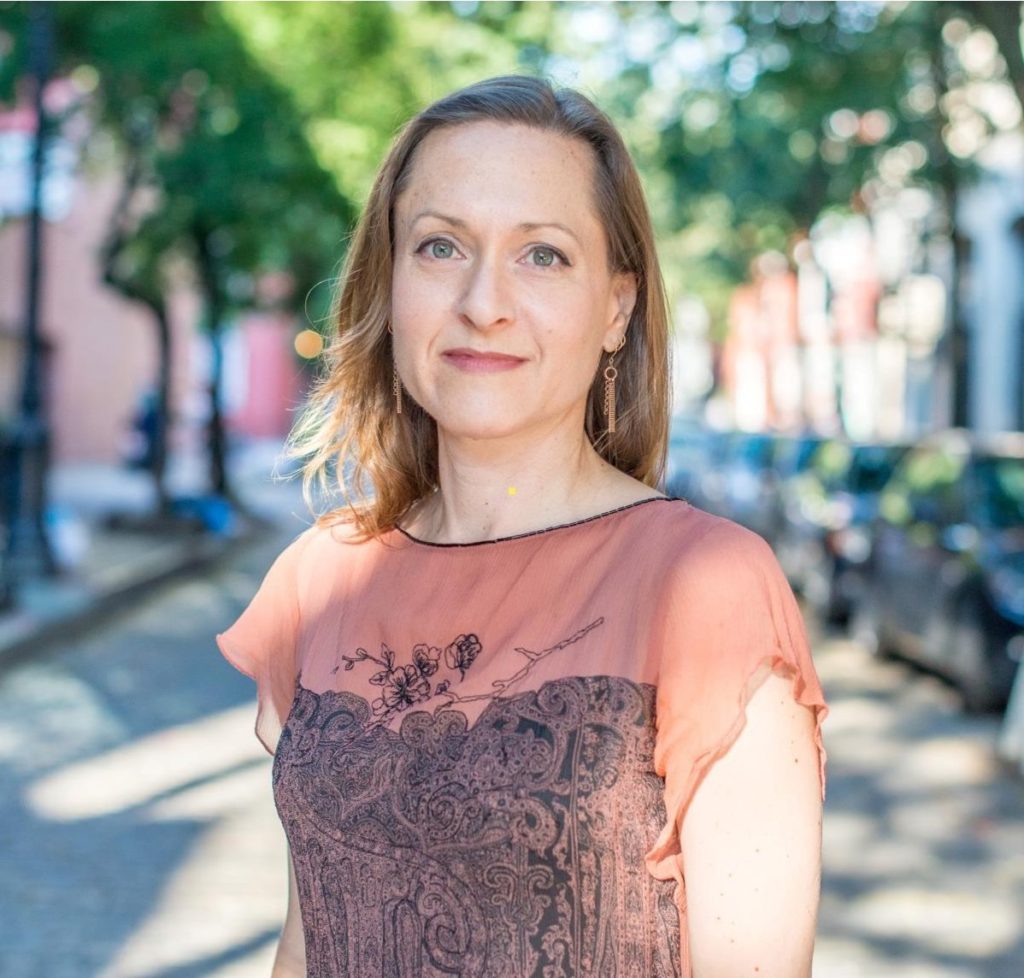
Amy Chazkel
I’m an Associate Professor of History and hold the Bernard Hirschhorn Chair of Urban Studies at Columbia University. Both as a member of the History faculty at the City University of New York for seventeen years and now at Columbia, I have been actively involved in research, teaching and institutional program-building related to my scholarship on Brazilian history. Although the city of Rio de Janeiro has been the focus of much of my work, I have conducted research in various parts of Brazil and taught at Universidade Federal de Santa Catarina as a visiting professor. My book, Laws of Chance: Brazil’s Clandestine Lottery and the Making of Modern Public Life in Brazil (Duke University Press, 2011), a study of petty crime and urban culture in nineteenth- and twentieth-century Brazil, was published in Brazil as Leis da sorte: O jogo do bicho e a construção da vida pública urbana (Editora da Unicamp, 2014). Other publications include articles on the history of penal institutions and illicit gambling in modern Brazil, the privatization of common property in global perspective, Rio’s nineteenth-century curfew, a collection of essays on police museums in Latin America, and a co-edited anthology of primary sources from Rio’s origins to the present day. I am co-editor of a recent issue of Radical History Review that explores historical cases of places and times without police throughout the world. Among other ongoing projects, I’m completing a book, Rio de Janeiro and the Politics of Nightfall (forthcoming with Oxford University Press), which recounts the history of the urban nighttime focusing on nineteenth-century Rio de Janeiro. BRASA has played an important part in my professional and intellectual life for over two decades. As a member of BRASA’s Executive Committee, I would support the Association’s work in bringing specialists in the study of Brazil throughout the world into dialogue with each other, promoting the field and expanding its reach, and advocating for us as a collective. I would also look forward to sharing in the work of public programming and would be particularly interested in expanding the Association’s work in supporting at-risk scholars and public intellectuals in Brazil and elsewhere, strengthening BRASA’s network beyond the US-Brazil axis, and promoting the sharing of ideas and resources.
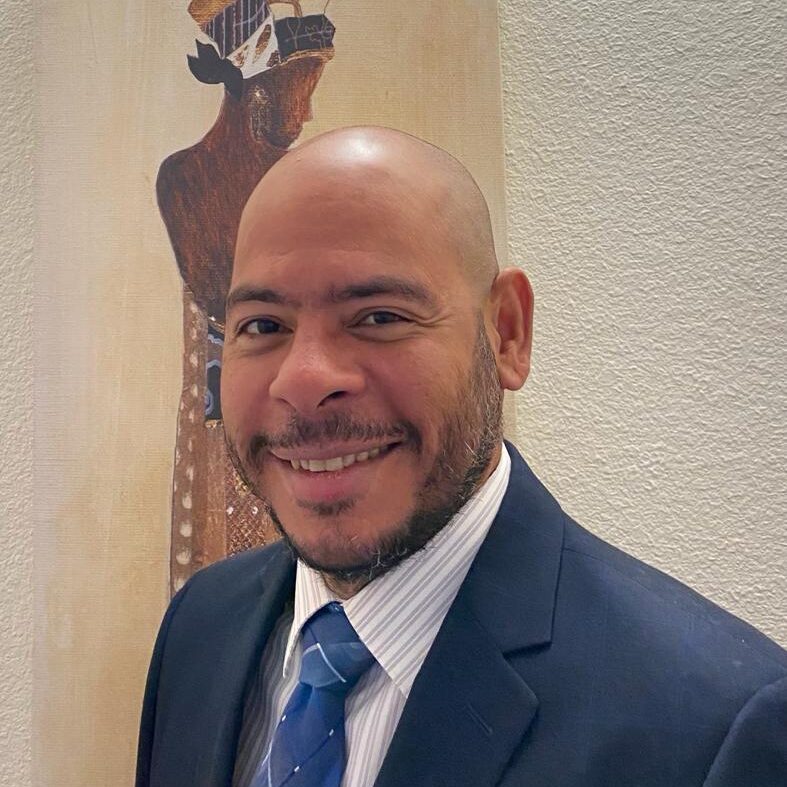
Paulo Dutra
I’m an Assistant Professor of Portuguese and Spanish at the University of New Mexico where I currently serve as the director of undergraduate studies for the department of Spanish and Portuguese. Brazilian rap is the focus of my current book project titled Reclaiming Blackness in Brazilian rap; however, I also examine racial issues in the works of Machado de Assis, and of contemporary afro-Brazilian women poets. I have published several articles on the three subjects. I am co-editor of a forthcoming issue of Machado de Assis em linha that explores race and slavery in his works. Last year, I worked as a consultant for Editora Todavia’s forthcoming collection “Todos os livros Machado de Assis” sponsored by Itaú Cultural. In addition to my work as a researcher, I keep an active production as a creative writer, which I believe informs my work as a scholar and teacher. My poems and short stories can be found in recent issues of Cadernos Negros and also in my two books: Aversão oficial: resumida and abliterações, both published by editora Malê (Rio de Janeiro). The latter was semifinalist of Oceanos Prize in 2020. Reflecting upon my journey, I like to believe that I am a side effect of a self-legitimated system of privileged cultural representation that drove me into becoming a non-traditional college student, an addict to short story writing and reading, a poet, and a teacher/scholar in order to escape performing activities, for a living, that some machine could easily accomplish. If elected to BRASA’s executive committee I would draw from my experience as former Executive Director of Scolas and as a current member of APSA’s executive committee to work collaboratively with members in order to foster the exchange of ideas that would support the mission of the Association.


Seth Garfield
Seth Garfield received his Ph.D. in Latin American history from Yale University. He is currently Professor of History at the University of Texas at Austin and former director of the Brazil Center at the Lozano Long Institute for Latin American Studies (2018-22) and the Institute for Historical Studies (2013-17). Garfield also serves as Associate Editor of the Oxford Encyclopedia of Brazilian History and Culture and Varia História and Senior Editor of The Americas. His primary areas of expertise within Brazilian history include Indigenous studies, environmental history, migration and comparative Frontiers, and the history of food and drugs. Garfield is the author of Indigenous Struggle at the Heart of Brazil: State Policy, Frontier Expansion, and the Xavante Indians, 1937-1988 (Duke, 2001), published in Portuguese translation as A luta indígena no coração do Brasil: política indigenista, a Marcha para o Oeste, e os índios xavante, 1937-1988 (Unesp, 2011). His second monograph, In Search of the Amazon: Brazil, the United States, and the Nature of a Region (Duke, 2014) received Honorable Mention for the American Historical Association’s Conference on Latin American History’s Bolton-Johnson Prize (2014). His most recent book Guaraná: How Brazil Embraced the World’s Most Caffeine-Rich Plant (University of North Carolina Press, 2022), received Honorable Mention for the Sergio Buarque de Holanda Prize for the Best Book in the Social Sciences from the Brazil Section of the Latin American Studies Association and was named the “Best in the World” in Drinks History by the Gourmand World Cookbook Awards. Garfield’s articles have appeared in the Hispanic American Historical Review, Revista Brasileira de História, and the Journal of Latin American Studies and his research has been funded by the Fulbright Commission, the National Endowment for the Humanities, and the Mellon Foundation.


Marc Hertzman
Ana Paulina Lee is Associate Professor of Latin American and Iberian Cultures at Columbia University. Lee’s research and teaching interests focus on the intersections between literary studies, political economy, and law. She takes a cultural studies approach to addressing race, gender, nation, and citizenship. Her research focuses on Brazil and Asia connections. Lee received a PhD in Comparative Literature from the University of Southern California, and was a Mellon Postdoctoral Fellow at the Stone Center for Latin American Studies at Tulane University in New Orleans, Louisiana.


Ana Paulina Lee
Ana Paulina Lee is Associate Professor of Latin American and Iberian Cultures at Columbia University. Lee’s research and teaching interests focus on the intersections between literary studies, political economy, and law. She takes a cultural studies approach to addressing race, gender, nation, and citizenship. Her research focuses on Brazil and Asia connections. Lee received a PhD in Comparative Literature from the University of Southern California, and was a Mellon Postdoctoral Fellow at the Stone Center for Latin American Studies at Tulane University in New Orleans, Louisiana.
She is the author of Mandarin Brazil: Race, Representation, and Memory (Stanford University Press), winner of the 2019 Antonio Candido Book Prize for Best Book in the Humanities. Mandarin Brazil examines the way that Brazilian cultural institutes constructed ideas about China and the Chinese to strengthen nationalism and racial whitening ideologies. The book brings together a multigenre archive that maps the circulation of trade, labor, and material culture to reveal the connected histories of Chinese and Portuguese expansion and globalization to the hemispheric Americas. Lee has also published articles, essays, and translations in academic journals and news outlets, including the Luso-Brazilian Review, Journal of Latin American Cultural Studies, The Drama Review, Asian Diasporic Visual Cultures, The Blackwell Companion to Luis Buñuel, The Global Studies Journal, e-misférica, Transmodernity: Journal of Peripheral Cultural Production of the Luso-Hispanic World; Al Jazeera, Truthout, and MSNBC. If elected to serve on the Executive Committee of BRASA, she would work toward creating more opportunities for comparative Global South studies to expand research on Brazil’s historical and cultural connections to Asia

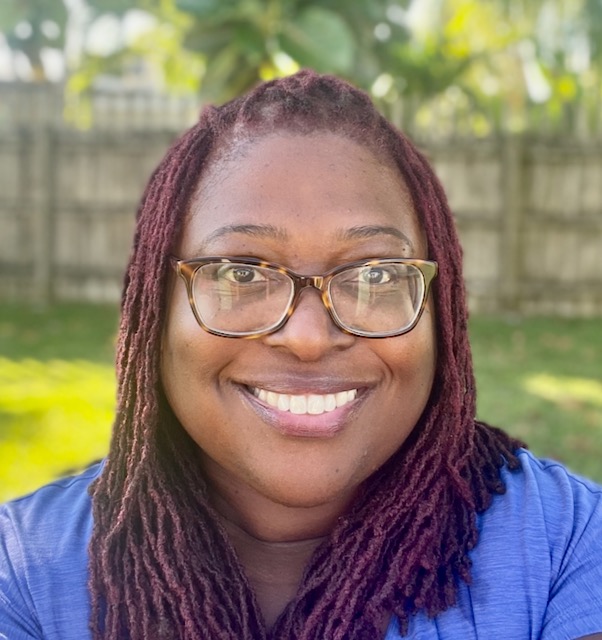
Okezi Otovo
Dr. Okezi T. Otovo, Associate Professor of History and African and African Diaspora Studies at Florida International University in Miami. My research interests focus on modern Brazilian social history and the social history of medicine, specifically peoples of African descent and the politics of gender and citizenship in the 20th century. My book Progressive Mothers, Better Babies: Race, Public Health, and the State in Brazil, 1850-1945 (University of Texas Press, 2016) analyzes the rise of the maternalist movement in Brazil as a reaction to international discourses on health and progress as well as local concerns about the deconstruction of slavery. It connects the history of changing cultural, intellectual, and medical ideas about mothers and children to the actual experiences of poor families of color in newly-formed institutions devoted to public health and social welfare. Within the profession, I have served as Chair for the Health and Society track for the Latin American Studies Association and Section Chair of the Brazilian Studies Committee for the Conference on Latin American History. From Miami, I lead a number of major research and community advocacy projects on Black maternal health in Florida, including “The Black Mothers Care Plan: Reducing Racial Bias and Supporting Maternal and Infant Health,” “From Moments to Movements: Story-Telling as Epistemology in Black Maternal Health,” and “Perspectives on Black Motherhood and Health.” As someone who has moved increasingly into U.S.-focused work in the past few years, I look forward to thinking of creative ways that BRASA can encourage transnational research and engagement. From my particular vantage point, I hope to contribute to much needed conversations on how expertise in and inspiration from the humanities can be put into public service.

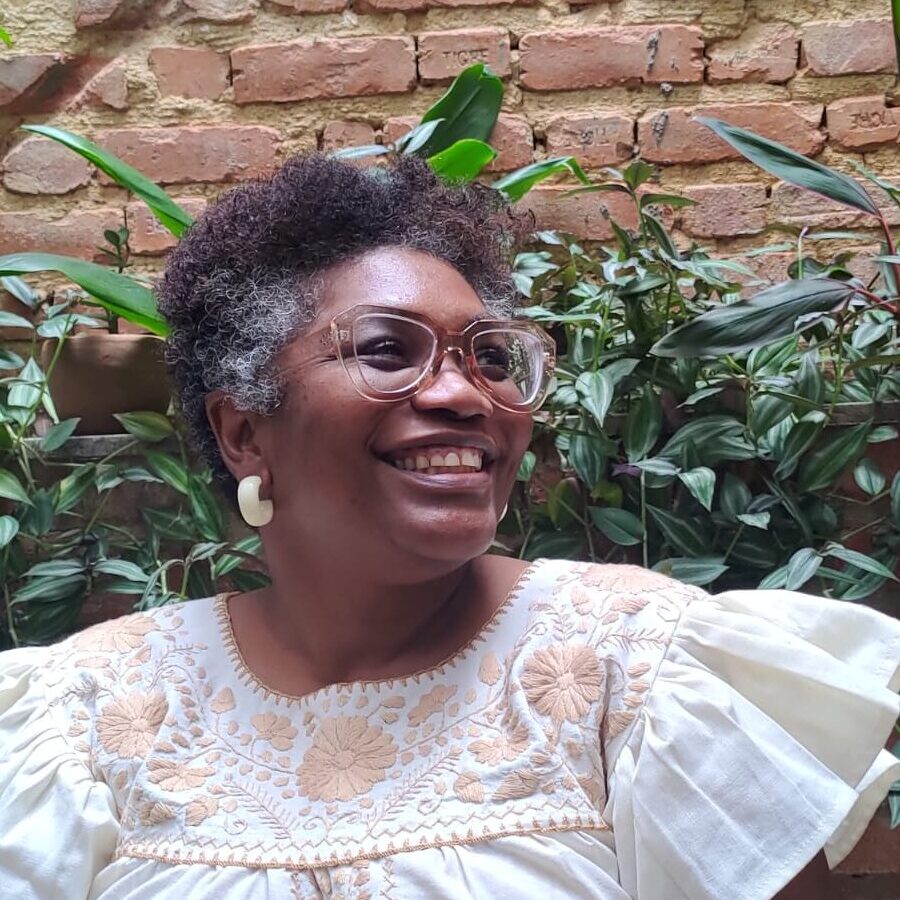
Ana Paula Alves Ribeiro
Anthropologist, Adjunct Professor at the Faculdade de Educação da Baixada Fluminense (FEBF – Pedagogy, Teacher Training Department/UERJ), of the Postgraduate Program in Art History (PPGHA/UERJ) and the Postgraduate Program in Cultures and Territoriality (PPCULT/UFF). Fellow of the Program of Incentive to Scientific, Technical and Artistic Production, PROCIÊNCIA/UERJ, is a researcher at the Núcleo de Estudos Afro-brasileiros (NEAB/UERJ, 2006 – ), coordinator of the extension program Afro Digital Museum of Rio de Janeiro (UERJ, 2019 – ), also a member of its board of curators and editors, as well as the Laboratory of Artistic Experimentations and Creative Reflections on Cities, Health and Education (LEARCC, UERJ and Fiocruz, 2016 – ). She also works with cinema and visual arts curation and education, having been one of the curators of the Encontro de Cinema Negro Zózimo Bulbul Brasil, África, Caribe e outras Diásporas in 2020 and 2021. She is part of the Curatorial and Editorial Board of the UERJ Exhibition Coordination (COEXPA), where she has been developing collective curators for the university’s galleries since 2022.Has experience in the areas of Anthropology (of Cinema, Visual, Urban and Afro-Brazilian Populations) and Research Methodology. She also works with curatorship and and visual arts and researches the following themes: Images of the Cities (Photographs, Public Art, Urban Art, Performances), Cinema and the City, Black Cinema, Visual Culture, Black Museums, Afro-Digital Museums, Afro-Brazilian Culture, Public Policies and Ethnic-Racial Relations and Education. She has collaborated with Associations since 2006, having been part of the Brazil Section, of the Latin American Studies Association/LASA (2006-2009), as well as the Brazilian Anthropology Association (ABA, since 2012), in which she participated in 3 managements of the Anthropology Committee Visual (CAV). Participating in Brasa since 2002, she would like to work on behalf of the Association and promote its congresses and the possibilities for dialogue between colleagues.

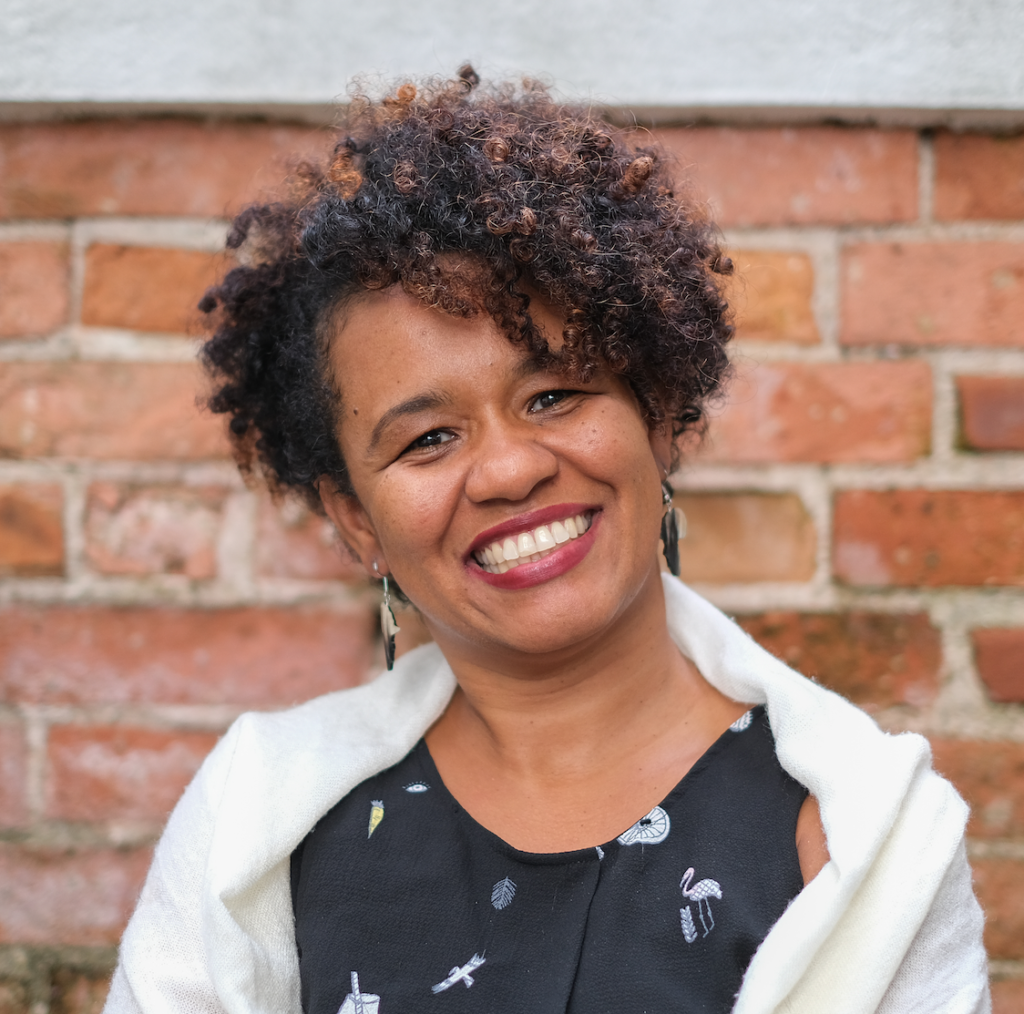
Flavia Rios
Flavia Rios (Ph.D, USP, 2014) is a Professor of Sociology at the Universidade Federal Fluminense (UFF), Brazil. She was a Visiting Student Reasearcher Collaborator (VSRC) in the Department of Sociology at Princeton University (2013). Professor Rios is a researcher at Afro / CEBRAP. Currently, she coordinates the Management of Racial Equality project in the city of Niterói. Flavia is a member of the Latin American Studies Association (LASA), the The Brazilian Studies Association (BRASA), the Brazilian Association of Postgraduate Studies in Social Sciences (ANPOCS), and the Brazilian Sociological Association (SBS). Her main interests are Social Movements, Gender and racial inequalities, Democracy and political representation, State and Racial Formation, Intersection Theories and Black Feminism, Anti-Racism, Brazil and Latin America. She wrote and co-organized three books: Lélia Gonzalez (Summus, 2010); Negros nas cidades brasileiras (Intermeios, 2018) and Por um feminismo afro-latino-americano (ZAHAR, 2020). BRASA is a fundamental association for the formation of scientific networks and academic meetings between Brazilian researchers and specialists in Brazil. BRASA is a space for exchanging knowledge, methodologies, and research experiences. The Brazilian Studies Association can make more and more an environment for intellectual stimulation and partnerships between researchers interested in Brazilian issues, especially in the themes of gender, race, and class inequalities.

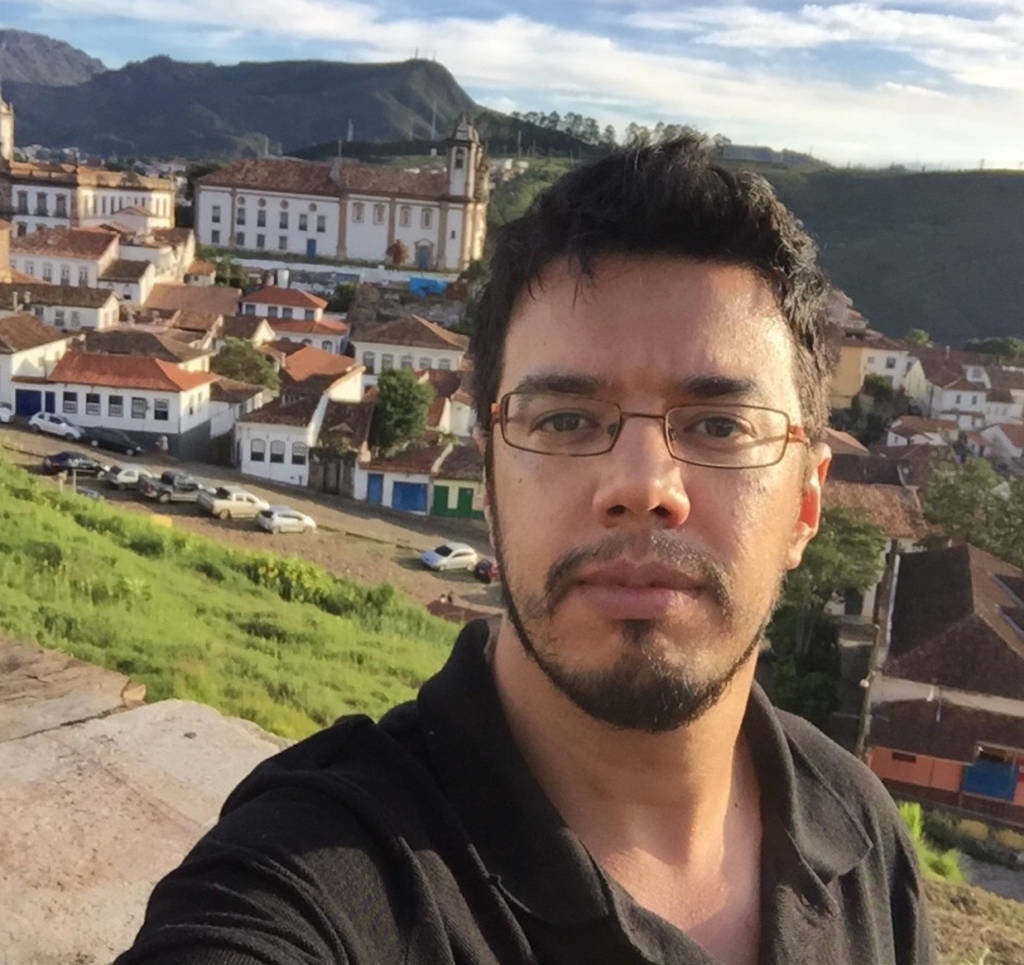
Aldair Rodrigues
I am from Minas Gerais and I live in São Paulo, Brazil. I hold a Ph.D. in Social History from University of São Paulo (USP) and since 2016 I am assistant professor in the department of History at the University of Campinas (UNICAMP). I am also director of Arquivo Edgard Leuenroth. In the United States I was a postdoctoral fellow in Latin American Studies at Yale University (2014-2015), where I coordinated the Brazil Lecture Series with the support of Yale Brazil Club. We were able to foster an interdisciplinary community from different nationalities and backgrounds to socialize and discuss multiple aspects of Brazilian society. In 2019 I had the opportunity to be a visiting scholar at the program of African Studies at Northwestern University (2019) to develop my current project about Brazil and the African Diaspora and network with a vibrant community of scholars from different parts of the world. It was also a great opportunity to get to know scholars in the Midwest. Based on these years of experience, here are my goals for BRASA: 1) Promote the visibility of studies that represent the social and ethnic diversity of its affiliates. 2) Keep the BRASA network active and vibrant in the digital environment throughout the year to strengthen its relevance beyond the annual event. 3) Enlarge its membership trough outreach in areas yet underrepresented in the association.

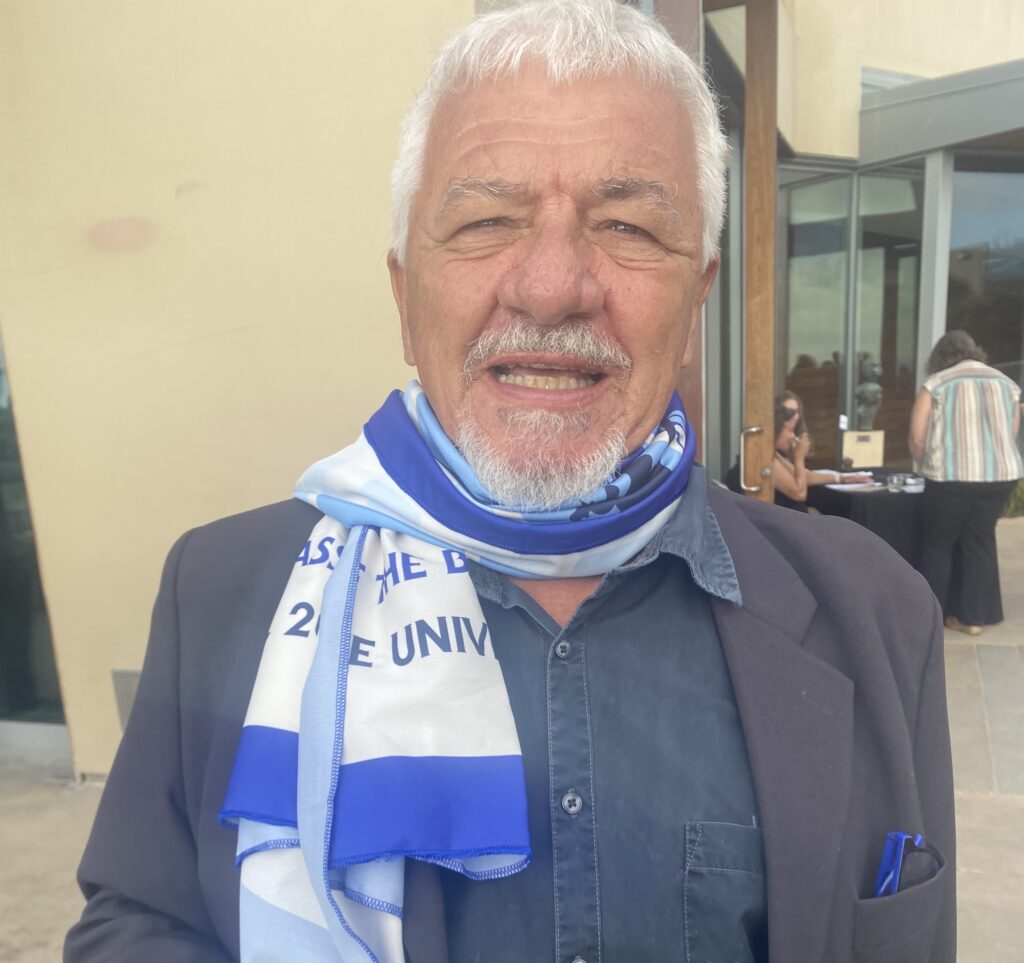
Livio Sansone
Livio Sansone (Palermo, Italy, 1956) got his PhD from the University of Amsterdam and has been living in Brazil since 1992, where he is full professor of anthropology at the Federal University of Bahia (UFBA). He is the head of the Factory of Ideas Program – an advanced international course in ethnic and African studies – and coordinates the Digital Museum of African and Afro-Brazilian Heritage. His best-known book in English is Blackness Without Ethnicity. Creating Race in Brazil (New York: Palgrave, 2003). His articles in English are available in the on-line journals Vibrant, Codesria Bulletin, Historia, Ciencias, Saude, Berose and Rockefeller Archive Center Research Reports. His most recent books are La Galassia Lombroso, l’ Africa e l’ America Latina (2022, Laterza, Italy) and Field Station Bahia. Brazil in the work of Lorenzo Dow Turner E. Franklin Frazier, Frances and Melville Herskovits – 1935-1967 (2023, Brill, Leiden) – both are being published in Portuguese in 2023 by EDUNICAMP. Over the last years, his research has been on the circulation of ideas of race and emancipation between Southern Europe, Africa and Latin America, the transnational making of Afro-Brazilian anthropology in the 1940’s and the cosmopolitan nationalism of Mozambican independence leader Eduardo Mondlane. He is a member of the Africa Multiple Program of the University of Bayreuth, Germany. He plans to help organize the 2026 BRASA Congress at UFBA and to organize within that congress (actually, immediately afterward) a special session of the doctoral school Factory of Ideas devoted to a critical reflection on the making of Brazilianists and, more generally, the advantages and disadvantages of a national focus (often constructed from without or in a transnational fashion) in a context where the South-South perspective, especially towards Africa and the rest of Latin America, is gaining more and more attention.

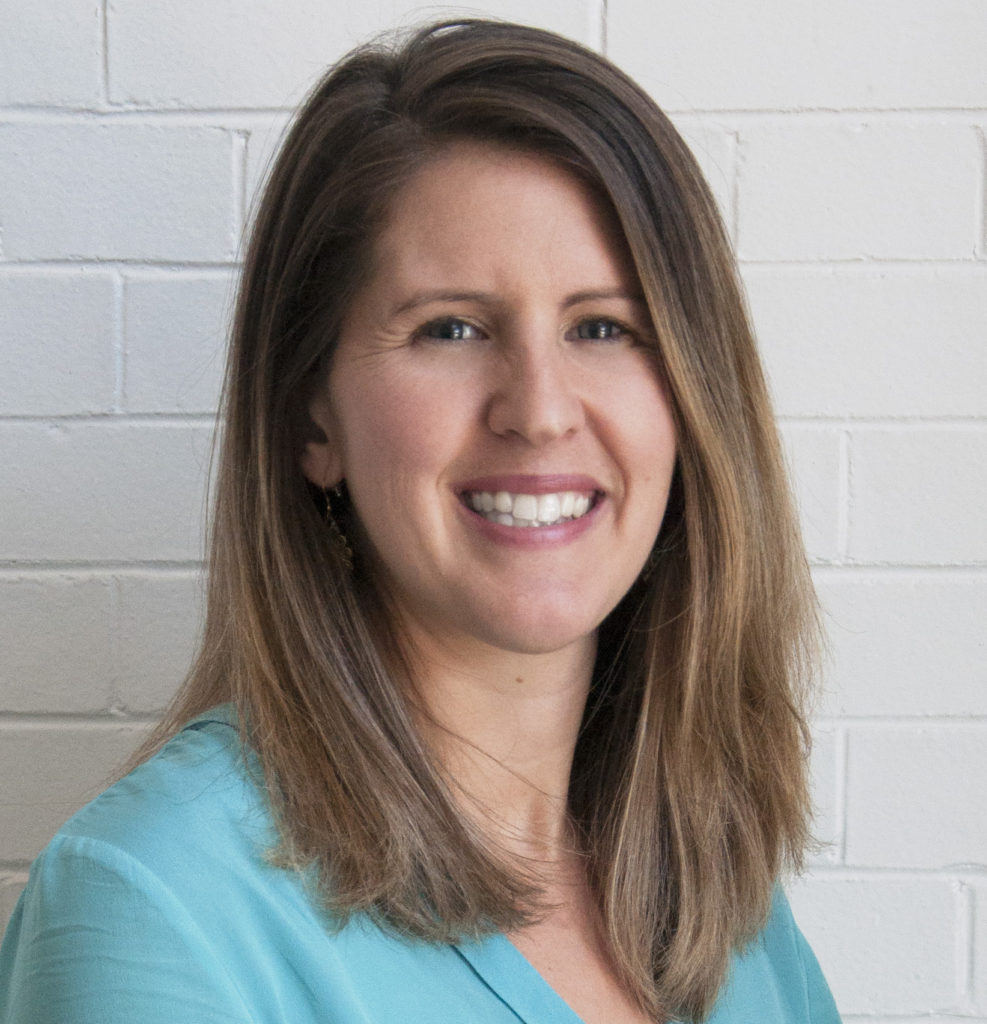
Rebecca Tarlau
I am Associate Professor of Education at Stanford University. My first engagement with Brazil was as an undergraduate, when I had the opportunity to work with a feminist organization in Recife using Freirean popular education in its community organizing efforts. I pursued graduate school to learn more about how social movements incorporated education into their social justice struggles. My book Occupying Schools, Occupying Land: How the Landless Workers Movement Transformed Brazilian Education (Oxford University Press 2019) won five book awards, include the LASA Brazil Section Best Book in the Social Sciences and the BRASA Robert Reis Book Award. Based on 20 months of ethnographic research, the book explores how MST activists have linked education reform to their vision for agrarian reform. I have also done research on the role of philanthropic organizations in shaping Brazilian education. My forthcoming book Teacher Organizing Across the Americas: Diverse Strategies for Transforming Unions, Schools and Societies (Oxford University Press) explores why teachers’ unions in Brazil, Mexico, and the United States have embraced radically different strategies, and the important role of internal oppositional movements in transforming the goals and strategies of labor unions. Currently I am involved in a multi-country comparative study analyzing the impact of sustainable agriculture education on agroecological knowledge and landscape change in Latin America.


Carolina Helena Timóteo de Oliveira
Carolina Timóteo de Oliveira completed her undergraduate degree in English at the Federal University of Minas Gerais in Belo Horizonte. While working on her undergraduate degree, Carolina developed research on new literacy and critical literacy in English language textbooks. She worked for seven years as a Portuguese and English teacher before completing her master’s degree in Latin American Studies at the University of North Carolina at Charlotte. Her master’s thesis entitled “Afro-Brazilian Culture as a Means of Transformation: Spaces, Business and Political Participation in Belo Horizonte, Brazil” investigates how Brazilian hip-hop can challenge social patterns and build new realities. At UNC Charlotte, Carolina taught Portuguese as a Foreign Language and Afro-Brazilian History and Culture courses to undergraduate students. In addition, Carolina participated in ethnographic research on social and racial dynamics in a gentrifying community in Charlotte, North Carolina. Carolina is currently pursuing a PhD in Latin American studies at Roger Thayer Stone Center for Latin American Studies at Tulane University and is part of the Mellon Graduate Program in Community Engaged Scholarship. Carolina is developing a project on identities, therapeutic resources, and empowerment strategies with the Afro-LGBT+ population in Belo Horizonte, Brazil. In addition, Carolina is conducting research with an ethnomusicological approach on the relationship between Candomblé and Afro-Brazilian art, the dynamics between Afro-diasporic rhythms, identity constructions, and notions of citizenship.

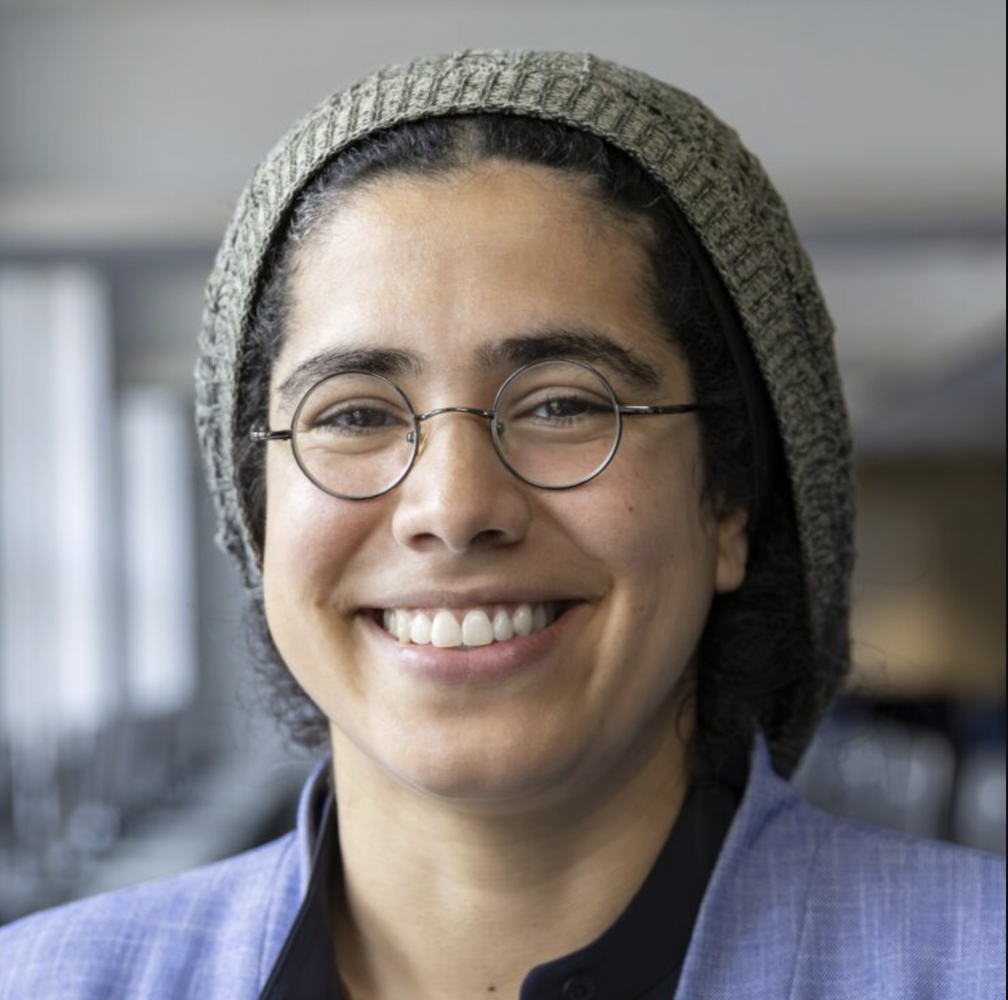
Rubia Valente
I am an Associate Professor of Public Policy and Research Methods at Baruch College – City University of New York. I received a doctorate degree in Public Policy and Political Economy from the University of Texas at Dallas (UTD), where I also earned an M.A. in International Political Economy. Prior to joining Baruch College, I was a post-doctoral research fellow at UTD, where I researched and published on Brazil’s affirmative action initiative and effectiveness. I was also a visiting lecturer for the Program in Latino Studies at Princeton University. My path into Brazilian Studies is deeply personal. I immigrated to the U.S. from Brazil in 2000, and while I built my academic career in the U.S., I have remained closely tied to Brazil—speaking Portuguese at home, traveling frequently to Brazil, and grounding my scholarship in Brazilian social issues. My PhD dissertation examined the access of Black and Brown students to public universities in Brazil and their performance on the ENEM exam (a university entrance exam)—an issue close to my heart as a first-generation college student. Since then, my research has continued to focus on Brazil and Latin America, engaging questions of inequality, race, and quality of life. On its broadest level, my work applies advanced quantitative methods and socioeconomic theory to investigate the impact of policies on underrepresented and marginalized groups, providing empirical support for formulating policies addressing socioeconomic inequalities due to race, class, and gender in social, political, and religious institutions. I am also a fellow of the Washington Brazil Office and member of the U.S. Network for Democracy in Brazil.


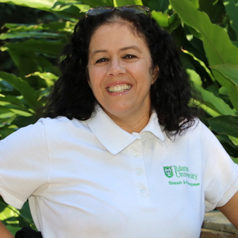
Claudia B. de Brito
Administrative Director
A native of Niterói, RJ, Claudia de Brito has lived in the Greater New Orleans area since 1993. She is Senior Executive Secretary of the Department of Spanish and Portuguese at Tulane University where she has worked since June 2000. She received an Associate Degree in Computer Technology from Delgado Community College in 2000, a BS in Computer Sciences from Tulane University in 2006 and a Master’s degree in Liberal Arts in 2023. Claudia de Brito is a Louisiana Supreme Court Certified Legal Interpreter and a Certified Medical Interpreter of Portuguese.


Christopher Dunn
Executive Director
Christopher Dunn is Professor and Chair of the Department of Spanish and Portuguese at Tulane University. He received his Ph.D. in Luso-Brazilian Studies from Brown University in 1996, the same year he joined the Tulane faculty. He holds a joint appointment with the Africana Studies Program and is a core member of the Stone Center for Latin American Studies. His research focuses on cultural politics during the period of the dictatorship, race and nationality, popular music, and black culture in Brazil. He is the author of Brutality Garden: Tropicália and the Emergence of a Brazilian Counterculture (UNC Press, 2001), which was later translated into Japanese and Portuguese. With a grant from the National Endowment for the Humanities, he completed his second book Contracultura: Alternative Arts and Social Transformation in Authoritarian Brazil (2016), also published by the University of North Carolina Press. Contracultura was co-winner of the BRASA Roberto Reis Book Award in 2018. He is co-editor with Charles Perrone of Brazilian Popular Music and Globalization (Routledge, 2001) and co-editor with Idelber Avelar of Brazilian Popular Music and Citizenship(Duke UP, 2011). He is currently writing a book tentatively titled “Stray Dog in the Milky Way: Tom Zé and Brazilian Popular Music.”